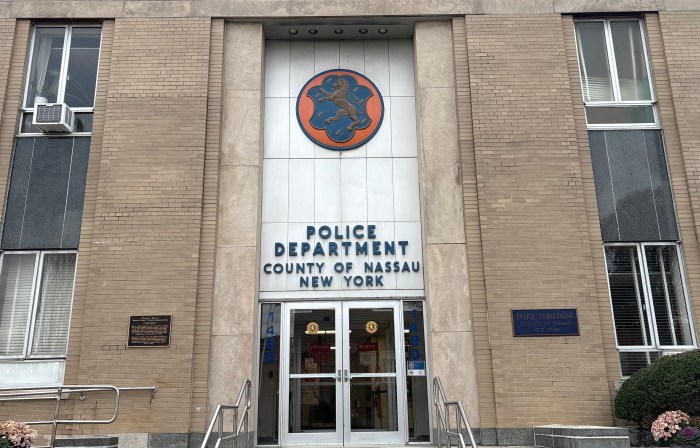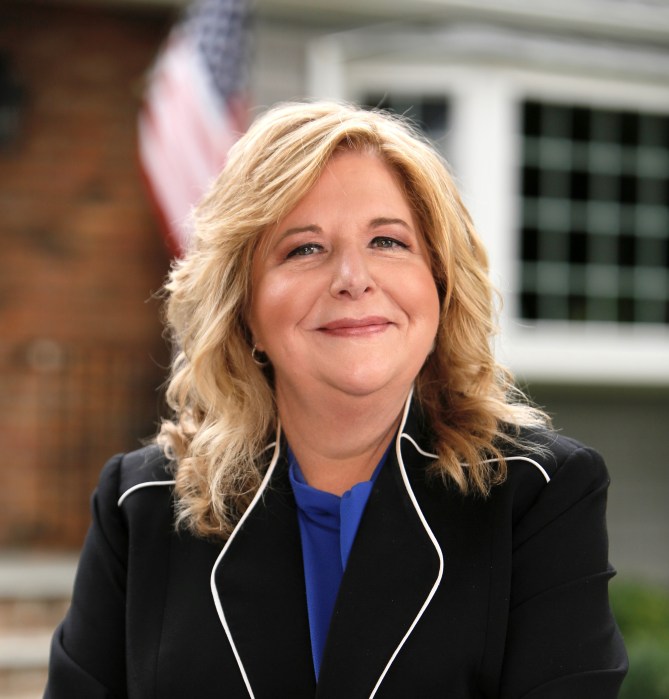When Joseph Slaninka started the wheelchair basketball program at the Viscardi School 23 years ago, he was trying to give the severely disabled students there a sense that they could play a sport just like their able-bodied peers.
“We wanted to create a program like a ‘regular’ school. Just because they’re in wheelchairs doesn’t mean they can’t play basketball,” Slaninka said in a recent interview at the school. “The kids just want to live, be a kid and be happy. They just want to do the same things other kids do.”

Last month, the Viscardi varsity team beat the Westchester School for Special Children, 36-22 to take the gold medal in the Empire Games for the Physically Challenged held at Nassau Community College. And the Viscardi junior varsity team took the bronze medal. But along with the medals, they took home a sense of pride and accomplishment.
“They are good ballplayers. They are good teammates. They have the ability,” Slaninka said. “They don’t sit in the corner feeling sorry for themselves. They’re doing it. That’s what I love about these kids.”
Born with spina bifida, a spinal chord defect, and hydrocephalus, a condition that causes fluid to build up around the brain, Slaninka had experience in overcoming his own disabilities to lead an active life that included playing wheelchair basketball. Coping with the hydrocephalus requires a shunt that drains the fluid from around his brain—and has necessitated frequent emergency room visits over the years.
Slaninka, 45, recalled that when he began working as an assistant teacher at the Albertson school for disabled children in 1993 and started the basketball program among middle school students, they embraced the program enthusiastically and responded to his coaching.
“It was great. I loved the kids,” he said. “They wanted to be challenged.”
The program steadily grew from there, adding squads for grade schoolers and high school students to participate.

Slaninka said he’s proud of the basketball program, which teaches the students all of the “intricacies” of basketball. Beyond those lessons on the court, he said he’s been giving his players lessons in learning what they can and can’t do and “accepting it” for what they will face in the future.
“It’s going to be a struggle. It’s going to be a fight. I’m trying to give them the tools to deal with things on the outside,” Slaninka said.
The Viscardi wheelchair basketball athletes play, according to their respective abilities, with the same intensity one would expect to see in able-bodied kids. And they visibly show respect and affection for their coach.
“He’s more than a basketball coach. He’s a mentor,” said Mariah Sepulveda, the varsity team’s talented point guard. “He helps all the kids in the Viscardi School.”
The Empire Games title tilt was the final basketball game Sepulveda played for her team. But as she looked ahead to studying at Hunter College on a full scholarship this fall, she said she planned to come back and assist Slaninka in coaching the Viscardi teams.
Many former Viscardi basketball players keep in touch, he said, and return to the school for alumni games their former coach stages. And Slaninka is aware of the impact he has on the students he coaches, beyond the fine points of playing offense and defense on a basketball court.
“I appreciate that they look up to me as a role model. I know what it’s like,” Slaninka said. “I’ve been there.”
Growing up in Baldwin with an able-bodied younger brother, he said it was difficult to watch his sibling play ball and run around like other kids.
After graduating high school, Slaninka attended Stony Brook University, where he was involved in a disabled services group. He’s been giving back the lessons he learned about the hard work it takes to accomplish anything since.
When he’s not teaching at the Viscardi School, Slaninka spends much of his free time raising money for it. Several years ago, he created the Team Viscardi Bike Club and last month participated in a marathon fundraising ride to Montauk Point. Over the past six years, Slaninka said the bicycle team, comprising approximately 100 riders, has raised $200,000 in donations for the school from those who sponsor their rides. The money has gone for purchasing new occupational therapy and physical education equipment for the Viscardi Center, he said. The “Ride to Montauk” draws a $100 registration fee from the riders, who also pay $75 for a Team Viscardi jersey which Slaninka designs each year.
Slaninka also created an annual 12-mile ride in the local area with help from the Williston Park Rotary Club and the Albertson Fire Department, which contributes a barbecue to the effort. The Nassau County Police Department also supports the Viscardi event.
“We got the community involved. We made a lot of friends in the neighborhood,” Slaninka said.
Slaninka oversees the school’s student council and also maintains a program of Viscardi Ambassadors, who make presentations at disability awareness days in public schools around Long Island.
“It helps break down that barrier between disabled and abled-bodied kids,” Slaninka said.
Four years ago, he married his wife, Nicole, a home care nurse, who he met at Viscardi. An avid scuba diver, Slaninka seems ready to accept any challenge. He has moved on from playing wheelchair basketball to sled hockey. But he plans to continue in his vital role of coaching the Viscardi wheelchair basketball teams.
“Wheelchair basketball is very important to our kids. The more they play, the happier they are,” he said.


























